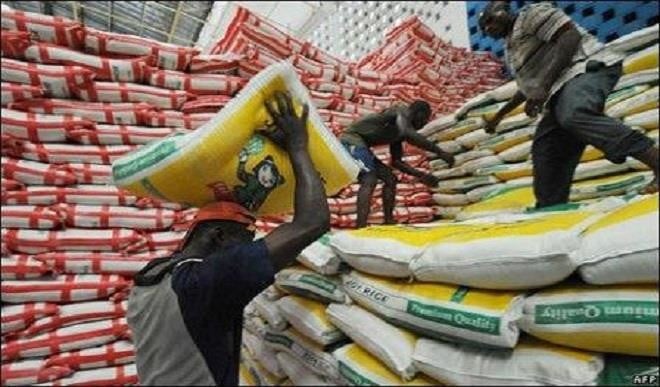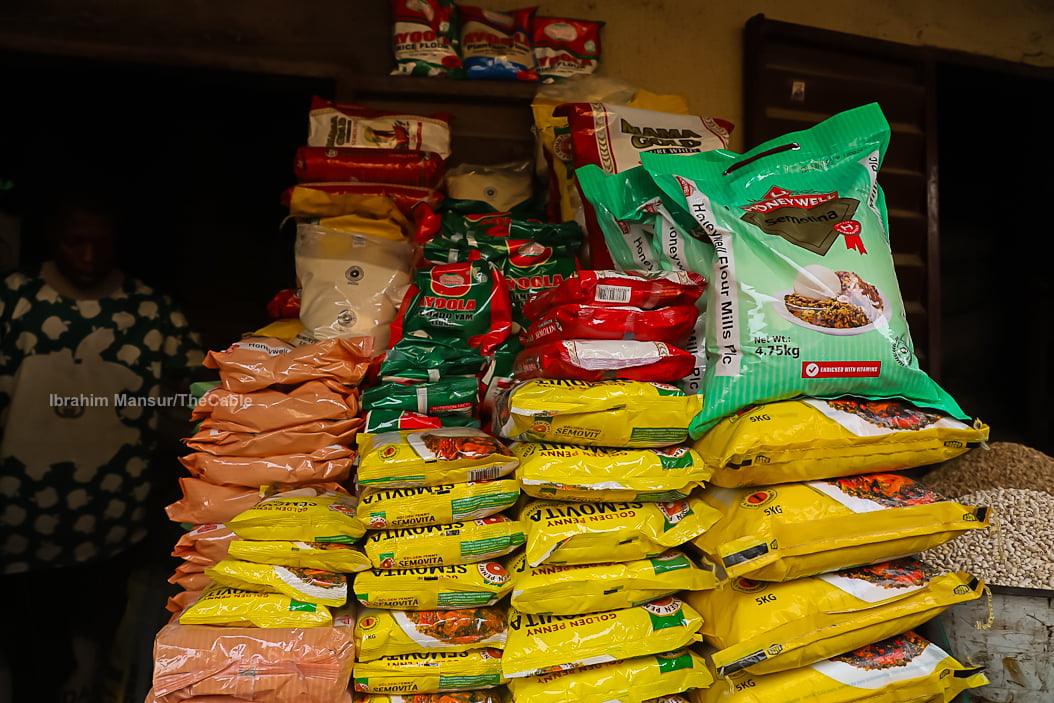On July 10, the federal government officially announced the suspension of duties, tariffs, and taxes on the importation of food commodities as part of initiatives to curtail the prevailing economic hardship worsened by high prices of commodities.
Abubakar Kyari, minister of agriculture and food security, said the measure is a 150-day duty-free import window for food commodities, which involves the suspension of duties, tariffs, and taxes for the importation of food maize, husked brown rice, wheat, and cowpeas.
On Wednesday, the Nigeria Customs Service (NCS) announced the implementation of the policy after it received a letter on the presidential approval for the initiative to be implemented.
The federal government believes the measure would ameliorate the high cost of food items in the Nigerian market.
Advertisement
‘REDUCING HIGH COST OF ITEMS WHILE LOSING REVENUE’
But analysts are divided over the federal government’s strategy which seeks to address the high cost of food items through the tax waiver.
Olorunfemi Toyin, the country representative of Cultivating New Frontiers in Agriculture (CNFA), described the policy as a short-term palliative meant to address food security but said it would affect Nigeria’s internally generated revenue (IGR) significantly.
Advertisement
“The revenues that has been suspended for now, would have been money generated to address some challenges in the country, isn’t it? Because what we are saying is that revenue should stop,” Toyin said.
“We are also having problems of internally generated revenue. It can no longer meet our needs. It’s like we are surviving on loss and incurred debt. So for me, it’s very important that there should be a broader strategy beyond these palliative.
“Because for consumers, he’s looking at price reduction, for businesses, it is having them to reduce their production costs and all of that but the global thing is to ensure that we are having very strong plans.”
Also, Toyin said the policy is “not impactful,” as it has a “very low shelf life” in terms of impacts to both businesses and the system.
Advertisement
It is almost detrimental to the economy, according to the expert.
‘TAX WAIVER ON WRONG FOOD COMMODITIES’
In the announcement by Kyari, the federal government limited the tax waiver to maize, husked brown rice, wheat, grain beans, and millet.
However, Emmanuel Oparah Ogu, former president of the Association of Nigerian Licensed Customs Agents (ANLCA), said the tax waiver would have “no positive impact” because the main food items that Nigerians need were not included.
Advertisement
“The announcement has not reduced hunger in the country. Then when you talk of other food items, I don’t know another food item that people talk about if not rice,” he said.
“The husked rice is basically for farmers and not for the end users to access. They are not finished product. The announcement that Mr. President made it to please people because that is exactly what you want to hear.
Advertisement
“So, I understand that it is a way of them bringing down the price of food items but I mean, giving waivers to goods that are not the major things is what I don’t understand.”
Ogu urged the government to make all food items “duty-free both from land and sea” as that would go a long way to helping everyone, especially the poor.
Advertisement
‘HIGH FX RATE AFFECTING FOOD COSTS’
With the official foreign exchange rate at N1,564.48 per dollar as of Thursday, there are questions as to whether the tax waiver on imported food items would crash the prices of food since a high FX rate remains a challenge for importers.
Advertisement
The high FX rate has led to imported inflation, which affects goods sold to the end users.
With the naira trading at over N1,500 against the dollar, experts believe that the policy would only succeed in achieving availability — not affordability.
Also speaking on the role of FX in the prices of food items, Ogu said the high exchange rate should have also been considered.
“You know the problem, our politicians are wiser than us. How can you float exchange rates? What stops them from reducing exchange rates? Let them peg it at a particular amount so importers will know what they are doing.”
However, Toyin said the affordability of the food items will not be a challenge as the FX rate has been stable.
‘A QUICK FIX’
On his part, Shakirueen Taiwo, an economist at Nigeria Economic Summit Group (NESG), described the tax waiver as a quick fix.
Taiwo said the goal of the government is basically to reduce the “current level of high food insecurity in the country by reducing the price of goods and services”.
“So it means the government will have to work towards bringing down the cost of food as much as they could. The government has two ways; the quick fix and the short and meantime. Both measures are aimed towards increasing the availability of food,” he said.
“The first is that the government should ensure massive importation of those grains either from neighbouring countries, from developed countries, or developed or international commodity markets.
“The second is that the government must increase our productivity, agricultural productivity in the country. This is the medium to long term.
“That cannot be achieved in the next one or two months. It’s not possible. So government then has to go for the quick fix which is to ensure massive importation of goods and services.
“The government has to be sure that the imported goods are coming at a minimal cost so that the final cost to the end users will also be affordable or at a price lower than the current market price.
“So for this policy at this moment I would say it is good but it is even coming so late. The eradication of hunger will not come with one government policy. We would need to ensure that Nigeria’s agricultural potentials are at optimal level.”
Taiwo added that the government must ensure that the bottlenecks concerning logistics are addressed as quickly as possible, deploy tools, enhance irrigation farming, and roads from the farm to the market must be fixed.
Add a comment






